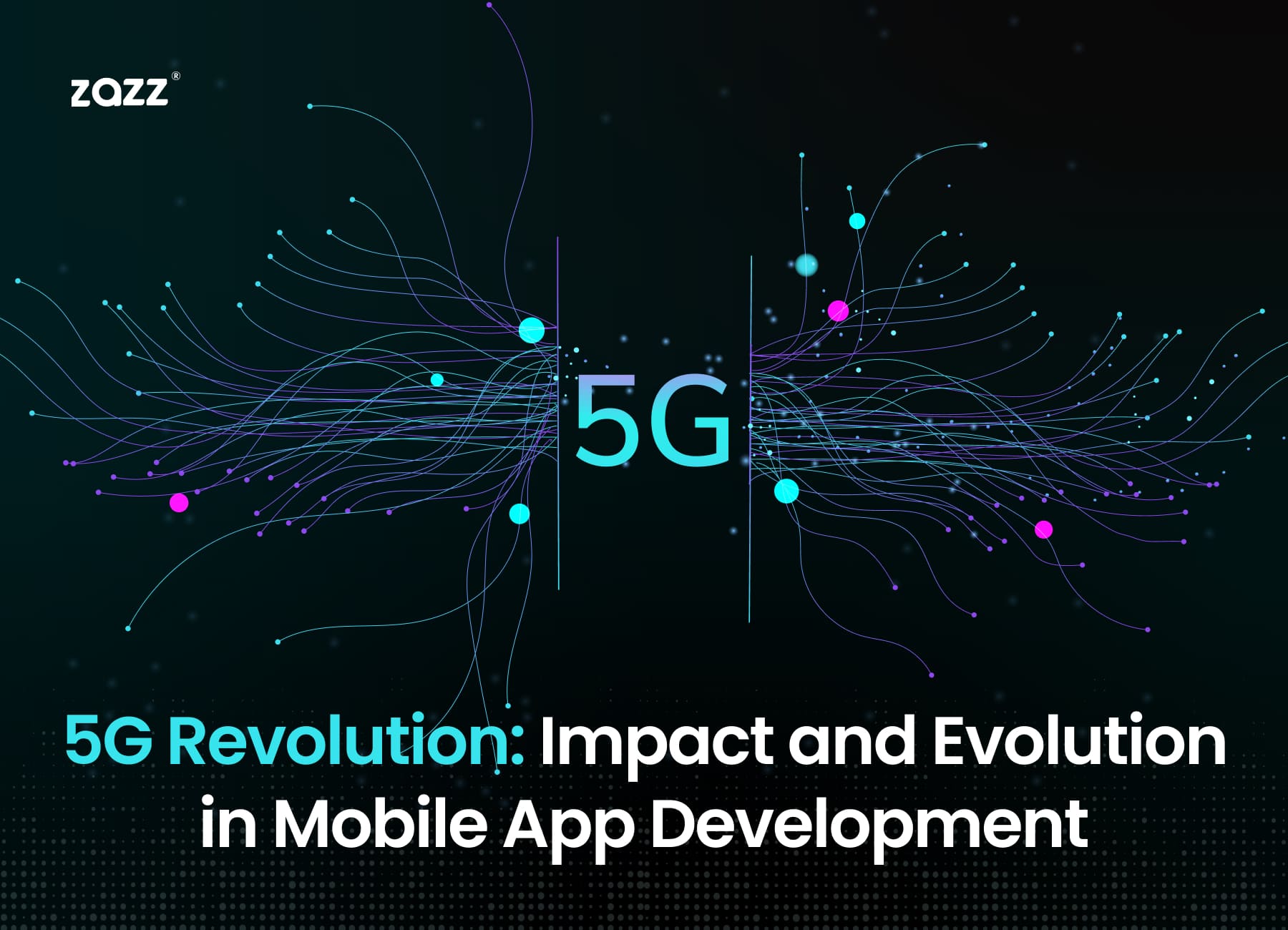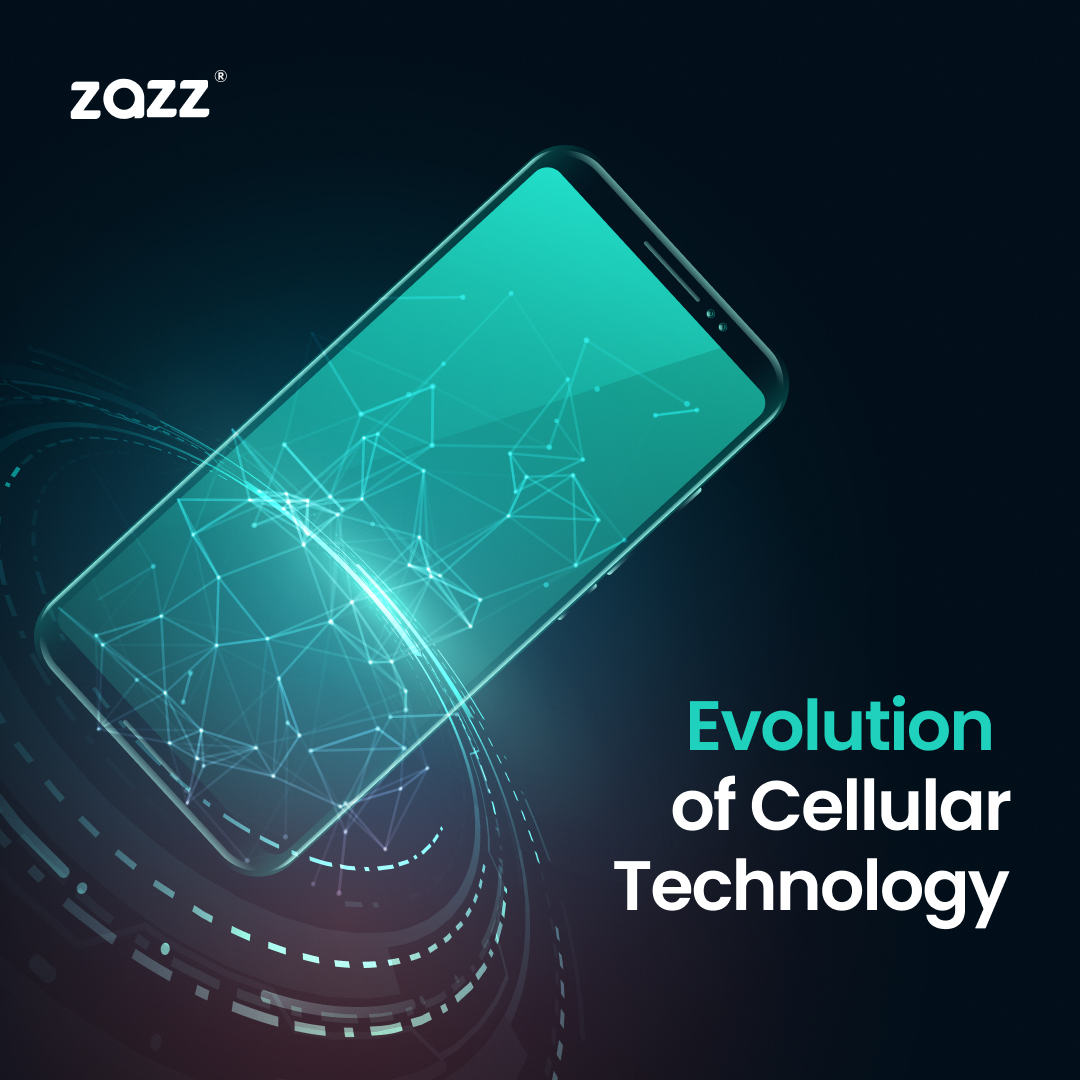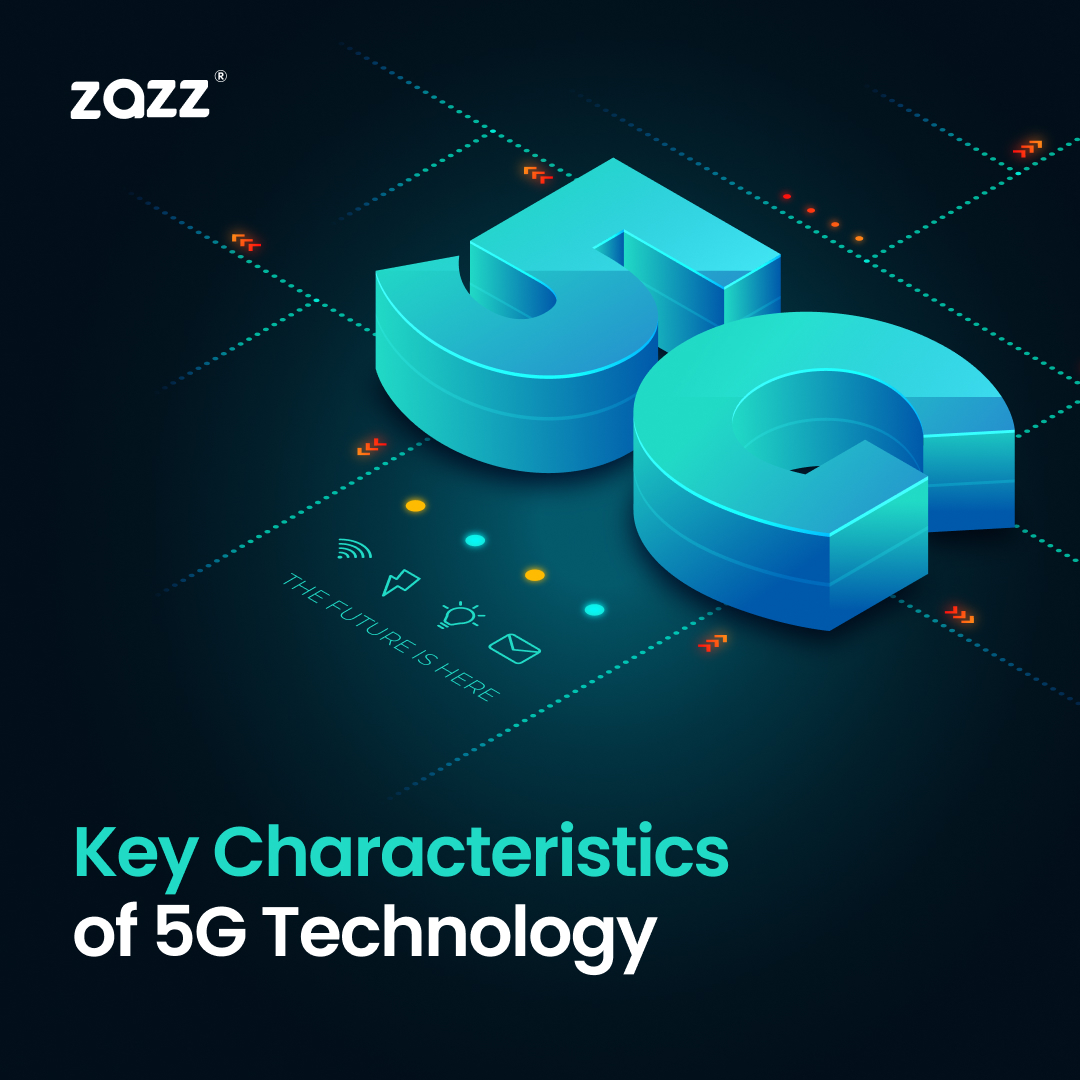
The evolution of 5G technology in recent years hasn’t just led to increased connectivity for users but has also transformed the world of mobile app development. Be it blockchain or the likes of Augmented Reality (AR) and Virtual Reality (VR), mobile app development companies have already started using these cutting-edge technologies to develop scalable, feature-rich solutions.
These advancements in the technological field have propelled the companies to a horizon of endless opportunities and innovation.
One such development that’s emerged massively amidst is the evolution of 5G cellular technology. This development has reshaped the way mobile app development companies across the world are creating apps.
With features such as lightning-fast speed, ultra-low latency, and considerable connectivity potential, the 5th-generation of cellular technology is expected to bring in some massive changes.
This article explores the impact of 5G evolution globally and how a mobile app development company can set itself up for success with the same.
Let’s get started.
Evolution of Cellular Technology

The evolution of mobile cellular technology over the years has been a rapid but significant development.
From 1G to 5G within 60 years has been a journey that has only been propelled towards a new horizon constantly.
Let us take a look at how cellular technology has evolved over the years:
- 1G:
It was developed during the 1970s, the first generation of cellular technology focused mainly on analog voice, and had a data transfer speed of around 2.4 kbps.
1G supported calls between mobile phones and was ideal for sending and receiving signals via radio frequencies.
- 2G:
Introduced a decade after 1G, 2G technology came to the fore, with the promise of increased Internet connectivity, voice calling & text messaging for users.
The data transfer speed during this time was around 50 kbps, propelled by the introduction of digital mobile phones.
- 3G:
The smartphones used today are the byproduct of the introduction of 3G technology in the 2000s. While 2G technology allowed sending text messages and voice calls, 3G technology was the reason behind the large-scale adoption of smartphones.
Here, the highest data transfer speed was 2 Mbps, with increased rates of data transmission and multimedia sharing.
- 4G:
The 4th generation of cellular technology, which is also known as LTE technology, is the most popular and widely used technology in the world currently.
Various facilities like online streaming, video calls, gaming, etc., are possible due to the introduction of the 4G technology.
A step ahead from the days of 3G, 4G technology had data transfer speeds up to 100 Mbps and can easily handle data-intensive tasks and applications.
- 5G:
5G technology is the future of cellular technology, providing a robust data transfer speed of up to 1 Gbps. Considered 100 times more effective compared to 4G, the provision of different bandwidths under this technology ensures better connectivity, seamless media streaming & ease of access to AR/VR applications on mobile devices.
5G is improving the wireless communication infrastructure and is currently adopted by most mobile app development companies.
Key Characteristics of 5G Technology

Following are some key characteristics of 5G technology that a mobile software development company needs to know to develop efficient mobile solutions:
- Lower Latency
Network latency, in simple terms, is defined as the time taken by the data to move from point A to B across the network.
Compared to 4G technology (which has a latency of around 50 milliseconds), 5G technology has a latency of just 1 millisecond, thereby reducing any interference or delay in data transfer.
The low latency characteristic of 5G networks empowers mobile app development companies to create advanced solutions in AR/VR, as well as facilitate seamless delivery of remote instructions.
It’ll also help companies create more responsive and interactive mobile experiences.
- Enhanced Connection Density
The connection density of a network refers to the transmission of data in a densely populated area. A populated location means more people accessing the network over smartphones, gadgets, etc.
5G technology serves the nodes smoothly and ensures more devices are connected to a network simultaneously without congestion.
This aspect is crucial for large-scale usage of IoT development & other interconnected, innovative city applications.
- Better Bandwidth
5G can accommodate more data and users seamlessly without compromising on performance – a feature that’ll be hugely beneficial to any mobile app development company building compatible solutions.
They will be able to create applications that can handle a heavy load of traffic and data-intensive tasks such as AR/VR & collaborative project management.
- Faster Speed and Performance
The best aspect of 5G technology is its speed and performance. Earlier, it used to take hours to download a single movie or file – a phenomenon which only takes a few seconds now.
The growth of 5G has taken user experience a notch higher by allowing any mobile app development company or business to develop applications that can transfer heavy data and stream HD/4k media files without lag or buffering.
- Increased Battery Life
5G’s reduced latency, minimal interference, enhanced speed, and connectivity help increase the battery life of devices. This development is a significant step up from previous iterations since it helps reduce battery drain significantly.
Increased adoption of 5G also indirectly extends the smartphone and IoT device lifespan, enabling users to use these devices and applications for longer duration without interruptions.
Impact of 5G Technology on Mobile App Development
5G technology has brought a sea of innovation to the mobile application development space, enabling any mobile app development company, business owner, or individual to create faster and more responsive applications.
Here’s how:
- Powerful Data Transmission
5G makes it easier to store and access large volumes of data due to its robust data transmission along with strengthened cloud compatibility.
- Faster Connectivity
The connectivity barriers are eliminated due to 5G technology, enabling people to connect, collaborate and create new experiences in real-time.
This development will further provide seamless citizen-to-citizen connectivity and also speed up processes related to governance and administration.
- Enhanced Gaming Experience
5G technology will bring about a massive upsurge in the world of gaming, allowing mobile app development companies and startups to create high-quality gaming experiences.
It eliminates the performance and speed constraints associated with previous iterations of cellular technology and provides users with a seamless playing experience.
This will enable more gaming-related apps and businesses to enter the market.
- Improved GPS Performance
GPS technology is the backbone of applications like food delivery, ride-sharing, and transportation, allowing custom services based on the user’s location.
The introduction of 5G gave these apps impetus, making data delivery quicker, enabling faster shipment tracking, and improving location accuracy.
Unlocking the Future: Revolutionizing Mobile App Development with 5G Technology
The journey of cellular technology has led to a groundbreaking evolution with 5G. With features like high performance, speed, and vast internet connectivity, it has really opened up a slew of opportunities for business owners, android app development companies, and individuals.
As 5G continues to mature, app developers will be able to shape the future of technology by embracing its potential and creating better solutions that change how people interact with the digital landscape across the world. If appropriately leveraged, 5G will be the next frontier of growth, enabling a world of endless possibilities. Empower your app’s future with 5G technology. Contact us today to transform your vision into a cutting-edge reality with our expert mobile app development services.
Frequently Asked Questions
5G will transform mobile app development by enabling faster data speeds, lower latency, and greater connectivity. This will support new features like advanced AR/VR, real-time video processing, and IoT applications. It will also enhance user experiences with more responsive interfaces and improved app performance.
5G opens up incredible opportunities for developers to create more immersive and innovative apps. This includes developing AR/VR applications, real-time collaborative tools, advanced IoT solutions, and apps that leverage high-quality video streaming. Developers can also explore new use cases in sectors such as healthcare, education, and smart cities.
At Zazz, we’re actively adapting our development processes to leverage 5G capabilities. We’re investing in training our developers on 5G-specific features, exploring new technologies like edge computing, and developing prototypes that showcase 5G’s potential. We’re also collaborating with industry partners to stay at the forefront of 5G innovation.
Developers may face challenges such as optimizing apps for varying network conditions, as 5G rollout will be gradual. They’ll need to consider backward compatibility with 4G networks, manage increased data usage, and adapt to new security considerations. Additionally, developing for 5G may require learning new technologies and frameworks.
5G will significantly enhance app performance with faster data speeds and lower latency. This will result in more responsive user interfaces, quicker load times, and smoother streaming experiences. Users can expect more real-time interactions, higher-quality media, and more sophisticated features in their mobile apps.
Industries like healthcare (telemedicine), education (immersive learning), entertainment (AR/VR gaming), manufacturing (IoT and smart factories), and urban planning (smart cities) are likely to see significant impacts. 5G will enable more sophisticated, real-time applications in these sectors, transforming how services are delivered and consumed.
Zazz offers comprehensive services to help businesses transition to 5G-ready mobile apps. We provide consultations on 5G strategy, app audits to identify optimization opportunities, and development services to create or update apps for 5G capabilities. Our expertise ensures that your apps are future-proof and can fully leverage the benefits of 5G technology.
Recent Articles
Table of Content 1. Data Engineer vs. Data Scientist: Understanding...
Table of Content 1. What is the Carnival in Brazil?...
Table of Content 1. What is IT Staff Augmentation? 2....












